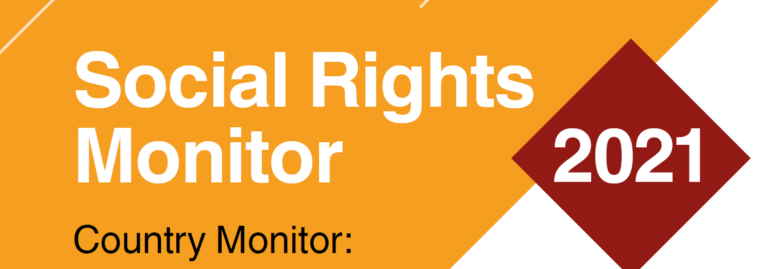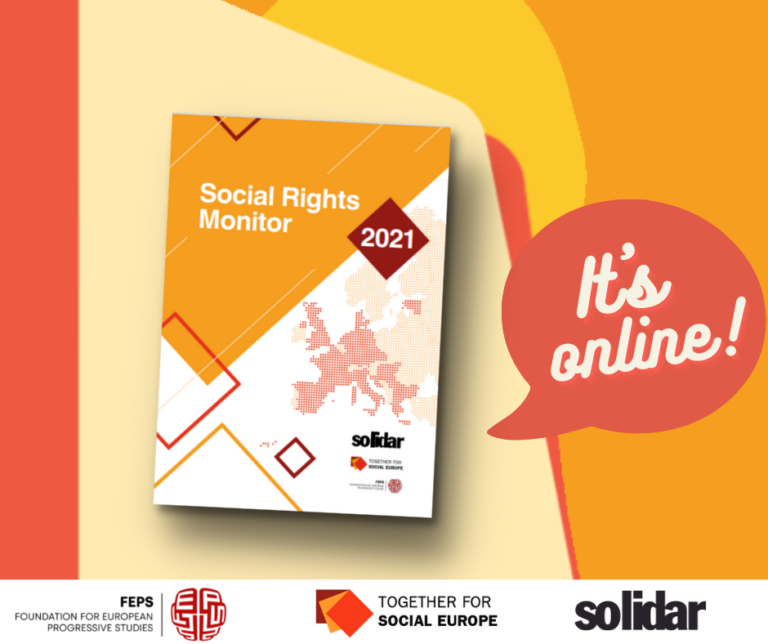Social Rights Monitor – Palestine
Recommendations
Respondents to the SRM tool acknowledge the role of EU, as the biggest donor; supporting Palestinian people. Yet their expectations go beyond financial assistance to a strong political will to support the Palestinian people’s rights, particularly when discussed at UN bodies. They envisage a partnership that reflects this strong support at all levels.
Within this partnership they call for a genuine engagement with civil society, ensuring a transparent, participatory and inclusive approach when the priorities are discussed and agreed upon. For instance, the absence of consultations with and the engagement of PWDs in these discussions is noted to have resulted in a lack of attention to PWD priorities and concerns in several calls for proposals launched to support Palestine. This is despite the fact that several respondents gave a positive reply regarding engaging with EU Delegations in consultations on diverse topics. Therefore they recommend that the priorities and thematic areas for EU cooperation in Palestine be built upon the real needs and priorities of the stakeholders through a bottom–up approach. Furthermore, with regard to the priorities set within ENP implementation, respondents recall ensuring the right to self-determination of the Palestinian people and giving an immediate end to occupation as the priority concern of the Palestinian citizens within any framework.
In this regard,
- Given that as long as the Israeli occupation continues, the Palestinian economy will be dependent on aid; and that poverty will remain a key challenge, a strong political stance against the Israeli occupation is needed within the implementation of the ENP. The 2017 Annual Action Plan (AAP) for Palestine[1], recognizes that “the Israeli occupation is the primary driver of poverty in Palestine” and “makes complex the delivery of assistance in Palestine.” This recognition should be reflected with a firm stance against the Israeli occupation, including within the framework of Israel’s commitments under article 2 of the Association Agreement.
- Whereas the AAP focuses on public finance management as a priority, and envisages technical advice, training and monitoring for budget execution and control at central and selected sector levels (e.g. medical referrals, wage bill), civil society concerns regarding social protection and labour rights should be taken into consideration, particularly towards the development of the national social protection floor in Palestine and the national budget allocated for social development. The inclusion of social protection measures for persons with disabilities should be ensured in related support, as a strategic right. Within the partnership, EU should promote a shift from a narrow approach to social protection to a universal one through creating jobs, insuring the protection of the unemployed, and the inclusion of the rights of children and the elderly or disabled. Social protection policy should be considered as part of the broader strategy of social development within the partnership and within the dialogue with the Palestinian Authorities.
- Support to strengthen civil society engagement for oversight activities is included in the Partnership. Despite limitations on civic space, the role of civil society within the partnership should be broader than just watchdogs, and the EU should engage in a structured dialogue to enhance an enabling environment and promote the application of international human rights standards. The complementary support foreseen for managerial and financial capacity, particularly of cultural organizations is welcome, but the EU’s partnership with Palestine should consider that arbitrary arrests, detentions, collective punishments and travel bans are continued to be used as tools to obstruct the legitimate work of human rights defenders, thus to provide effective support to civil society an enabling environment must first be developed for them to ensure the full enjoyment of the fundamental freedoms of association, assembly and expression.
- Trade union rights in the public sector in Palestine should remain a key concern within the Partnership, and in EU support to civil society. The promotion of fundamental rights and freedoms of public employees, like any other citizens, is crucial for fostering sound public administration and good governance.




